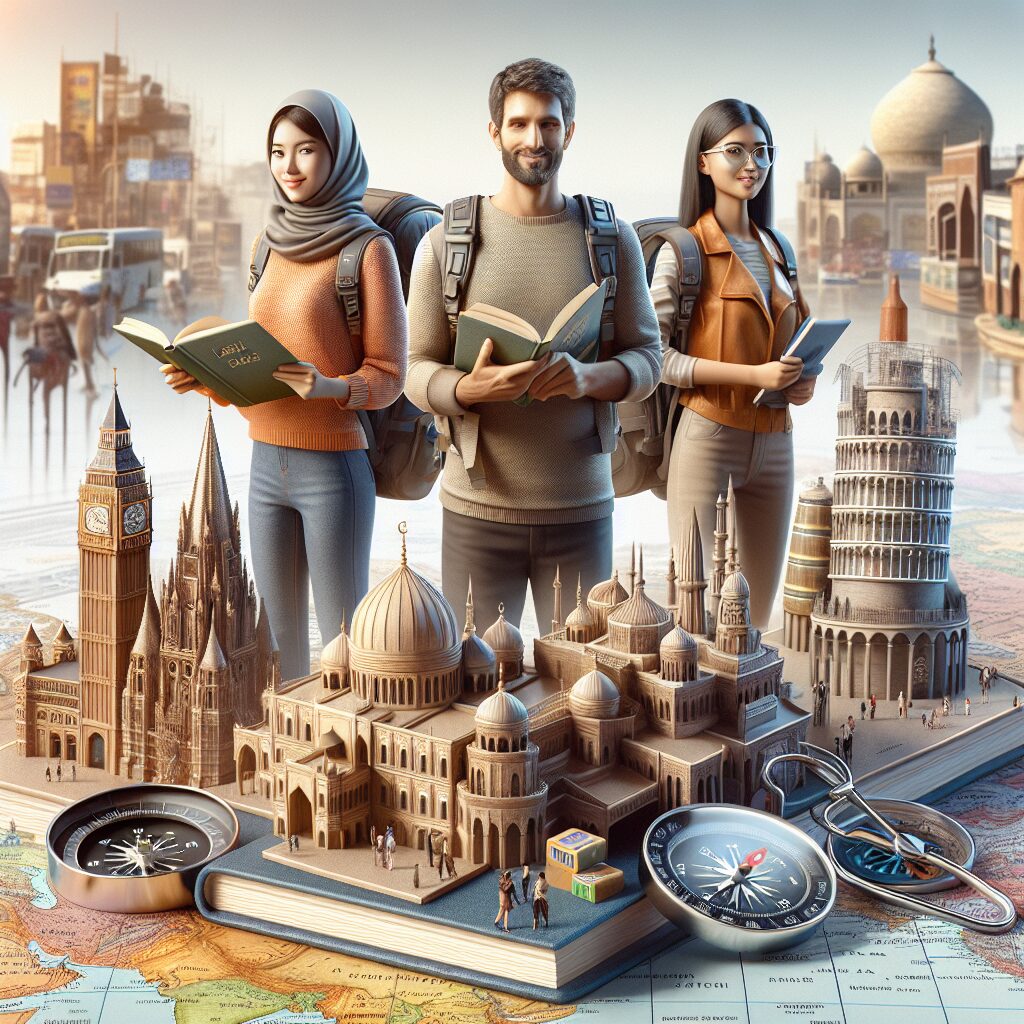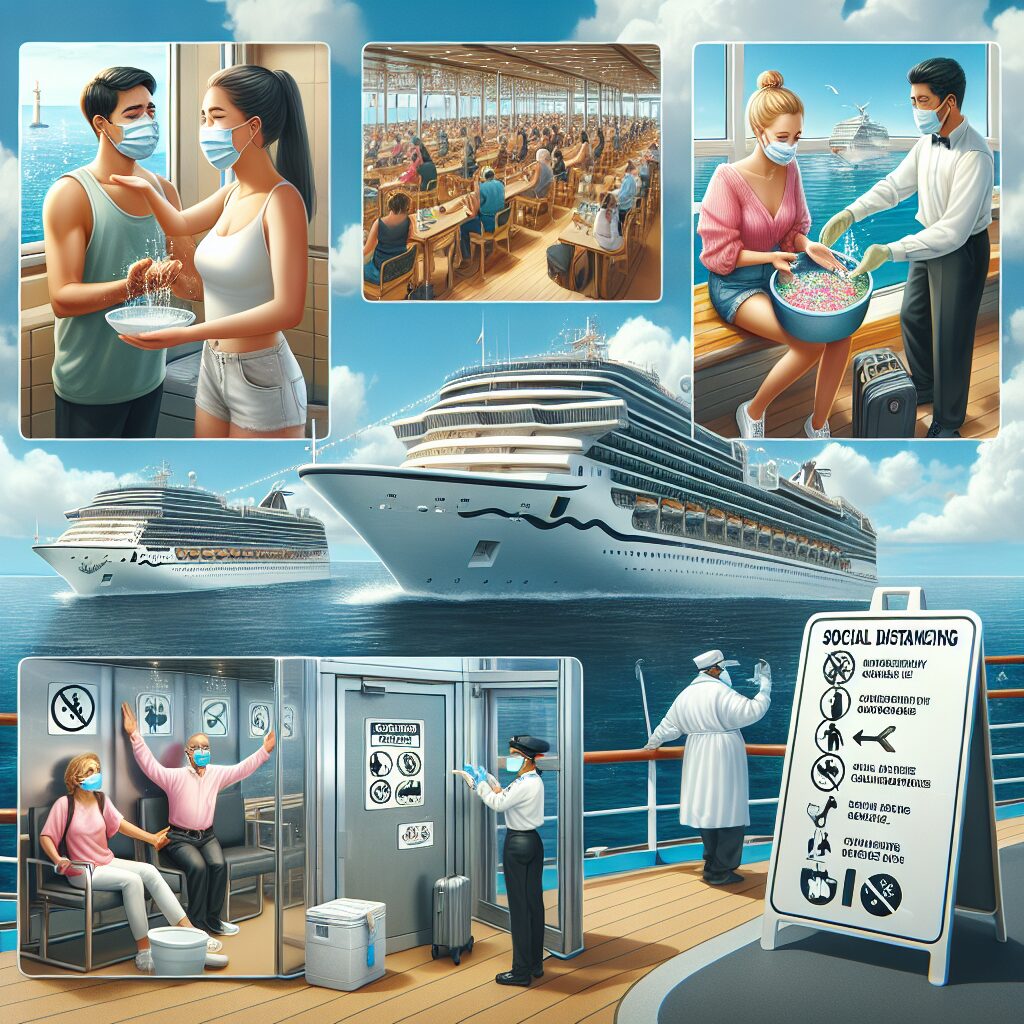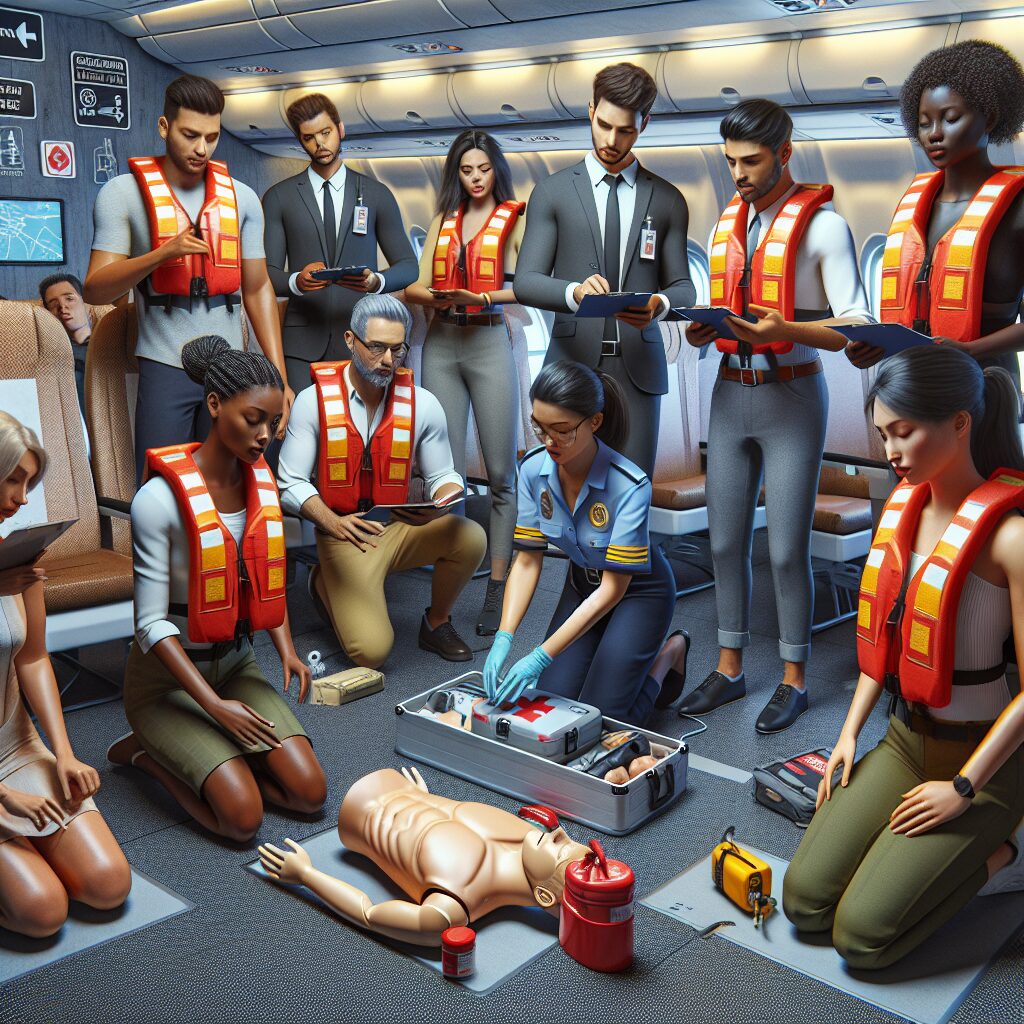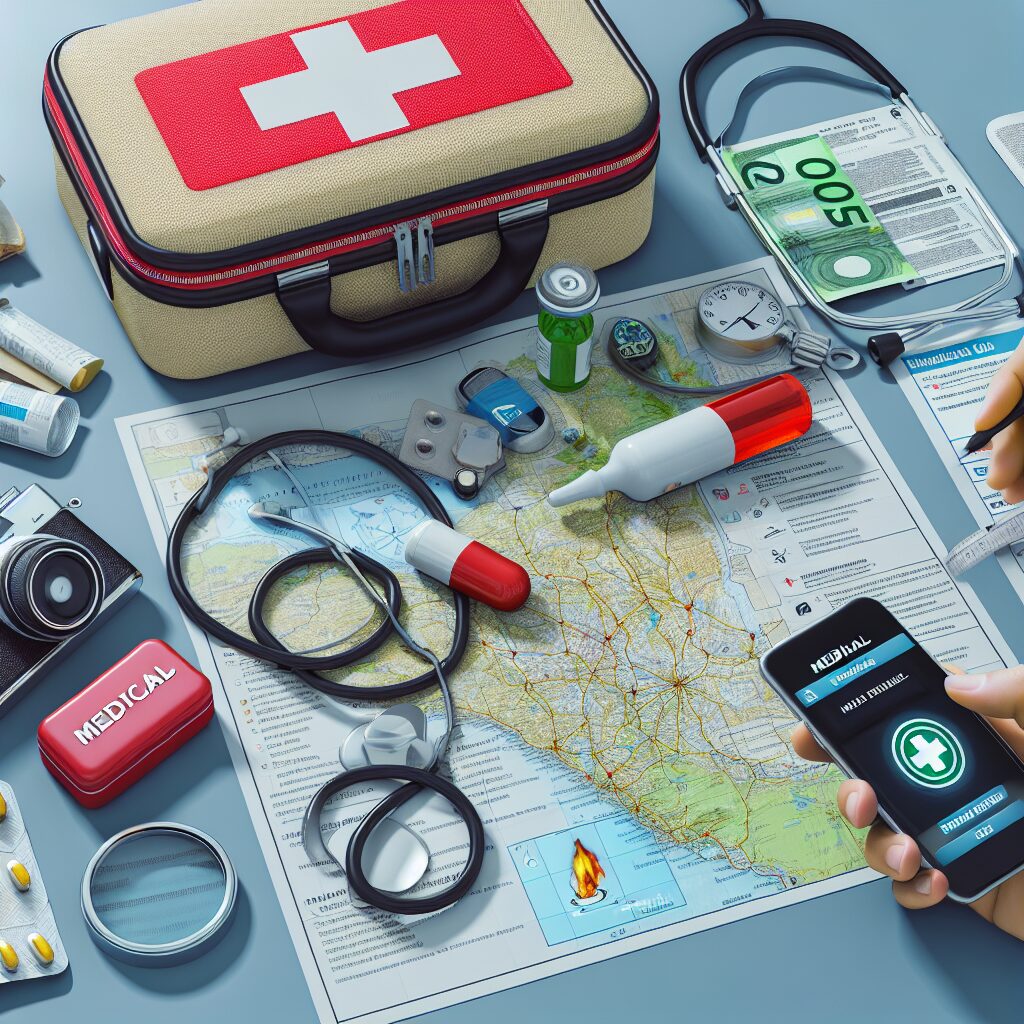Language Learning for Enhanced Travel Safety is a topic that has gained significant attention in recent years. As more and more people venture abroad for leisure or business purposes, the importance of being able to communicate effectively in a foreign language cannot be overstated. The ability to understand and engage in basic conversations in the local language not only enhances the travel experience but also plays a vital role in ensuring personal safety. Research has shown that language barriers can be a major hurdle when it comes to seeking help or navigating unfamiliar surroundings. Therefore, by actively engaging in language learning, travelers can equip themselves with a valuable skill that can greatly contribute to their overall safety and well-being.
One of the most significant impacts of language learning on travel safety is the ability to effectively communicate with the local population. When faced with an emergency or even a simple situation like asking for directions, being able to speak the local language can be a game-changer. It eliminates the need to rely solely on translation apps or non-verbal communication, which may not always be accurate or efficient. Moreover, speaking the local language enables travelers to blend in with the locals and avoid potential scams or tourist-targeted crimes.
Moving on to the key takeaways, this article will delve into the various ways in which language learning can enhance travel safety. Firstly, we will explore the importance of understanding basic phrases and greetings, which can break down cultural barriers and establish rapport with locals. Secondly, we will discuss the role of language proficiency in emergency situations, such as seeking medical assistance or reporting a crime. Lastly, we will highlight the benefits of immersing oneself in the local language and culture, as it can provide a deeper understanding of the destination and its customs. Stay tuned to discover how investing time and effort in language learning can significantly contribute to a safer and more enjoyable travel experience.
Key Takeaways
1. Language learning can greatly enhance travel safety by enabling tourists to effectively communicate with locals and navigate unfamiliar environments.
2. Being able to speak the local language enhances personal safety by increasing the ability to ask for help, understand emergency instructions, and communicate any safety concerns.
3. Language learning can also enhance cultural respect and understanding, reducing the risk of inadvertently engaging in disrespectful or offensive behavior that may compromise personal safety.
4. Utilizing language apps, online resources, and language courses can provide tourists with valuable language skills and cultural knowledge before embarking on their travels.
5. Learning basic phrases and common local customs, such as greetings and cultural norms, can contribute to a positive travel experience and foster connections with locals, thereby enhancing overall safety.
Q: How can language learning enhance travel safety?
Why is language learning important for travel safety?
When traveling to a foreign country, language barriers can often pose significant safety risks. Without knowledge of the local language, it becomes challenging to communicate effectively with locals, ask for help, or understand essential safety instructions. Language learning plays a crucial role in enhancing travel safety and ensuring a smoother and more secure experience abroad.
Improved communication with locals
One of the main advantages of learning the language spoken in your travel destination is being able to communicate effectively with locals. Understanding and speaking their language allows you to ask for directions, seek assistance during emergencies, and interact with locals in a more meaningful way. This not only enhances your travel experience but also keeps you safe by ensuring that you can communicate your needs and understand the information provided to you.
Gaining cultural awareness and respect
Language learning goes beyond communication skills. It also helps in gaining cultural awareness and respect. By immersing yourself in the local language, you gain insights into the culture, customs, and traditions. This knowledge allows you to navigate unfamiliar situations more confidently, respect local customs, and avoid unintentionally offending anyone. Cultivating cultural awareness reduces the risk of misunderstandings or conflicts, ultimately contributing to enhanced travel safety.
Navigating emergency situations
In case of emergencies, being able to speak the local language becomes crucial for contacting authorities, seeking medical help, or reporting incidents. In situations where every second counts, language proficiency can make a significant difference. By understanding emergency terminology, you can convey information accurately and efficiently, ensuring prompt assistance. Language learning prepares you to handle emergency situations effectively, minimizing potential risks and ensuring your personal safety.
Accessing vital safety information
Understanding the local language enables you to access and comprehend vital safety information. From reading warning signs and instructions in public places to understanding safety protocols, knowing the language allows you to stay informed and make informed decisions. Whether it’s following evacuation procedures or recognizing potential hazards, language learning empowers you to take necessary precautions, mitigating potential safety threats during your travels.
Building connections and trust
Learning the local language demonstrates your respect and effort in understanding the culture and connecting with the local community. By speaking their language, locals often perceive travelers as more trustworthy and approachable. This can lead to valuable connections and help create a support network of locals who can provide guidance and assistance when needed. Building connections and trust within the community enhances your overall travel safety by having reliable contacts in unfamiliar surroundings.
Tips for language learning to enhance travel safety:
- Enroll in language classes or use online language learning platforms to start learning the basics before your trip.
- Practice conversational phrases and common safety vocabulary related to emergencies, directions, and medical assistance.
- Engage with native speakers during your travels to practice and develop fluency.
- Use language learning apps or dictionaries as handy tools for translating and understanding local signs, menus, and instructions.
- Immerse yourself in the local culture and try to communicate as much as possible in the local language.
- Learn about cultural differences and customs to navigate social situations respectfully.
- Invest in a language translation device or app for quick assistance in challenging situations.
- Stay persistent and keep practicing even when faced with difficulties. The more you practice, the better you’ll become.
Frequently Asked Questions
1. How does language learning enhance travel safety?
Learning the local language when traveling allows you to communicate effectively with locals, reducing the chances of misunderstandings or getting lost in unfamiliar places. It also enables you to seek help, ask for directions, and convey emergency situations to ensure your safety.
2. Can language learning help in emergency situations?
Absolutely! Knowing the local language can be a lifesaver during emergencies. In critical situations, being able to communicate with emergency services or locals can expedite the assistance you need and ensure clear instructions are provided to handle the situation effectively.
3. What are the benefits of learning basic phrases and expressions?
Learning basic phrases and expressions in the local language helps you navigate day-to-day activities with ease. It empowers you to order food, ask for help, make reservations, and engage in basic conversations. This basic knowledge also showcases respect for the local culture, making interactions more pleasant and safe.
4. How can language learning improve cultural immersion?
Language learning is a gateway to cultural immersion. By understanding the local language, you gain insights into the customs, traditions, and values of the destination you’re visiting. It allows you to connect with locals on a deeper level, fostering meaningful cultural experiences and enhancing your overall travel safety.
5. Is it necessary to be fluent in the local language for enhanced travel safety?
While fluency is not necessary, having a basic understanding of the local language can significantly enhance your travel safety. Knowing how to communicate in essential situations is paramount, allowing you to seek help, understand safety instructions, and manage typical travel challenges more effectively.
6. How can language learning help with navigation and transportation?
Language learning facilitates navigation and transportation in various ways. By understanding street signs, public transportation announcements, and basic directions, you can navigate unfamiliar areas confidently. It also enables you to ask for transportation assistance, clarify routes, and ensure your safety during commutes.
7. Are there any recommended language learning resources for travelers?
Yes, several language learning resources cater specifically to travelers. Mobile apps like Duolingo, Babbel, and Rosetta Stone offer beginner-friendly lessons and travel-focused phrasebooks. Language guidebooks and online platforms with audio lessons, such as Pimsleur and Memrise, also provide valuable resources for enhancing language skills on the go.
8. How much time should I dedicate to language learning before traveling?
The amount of time required for language learning depends on your goals and the complexity of the language. Starting with a few weeks or months of dedicated learning can help you grasp essential phrases and expressions. However, consistent practice and exposure to the language throughout your travels will further enhance your proficiency.
9. Are there any language learning methods or techniques specifically suited for travelers?
Yes, immersion-based language learning methods are particularly beneficial for travelers. This involves practicing the language in everyday situations, interacting with locals, and using language learning apps or audio guides that focus on practical usage. Immersion-based methods encourage quick learning and confidence-building before and during your travels.
10. Should I prioritize learning the local language of every country I visit?
While learning the local language can greatly enhance your travel experience, prioritizing it for every country may not be realistic. Instead, prioritize learning the language in destinations where you plan to spend a significant amount of time or visit frequently. For others, acquiring basic phrases and expressions should be sufficient for a safe and respectful travel experience.
Final Thoughts: Language Learning for Enhanced Travel Safety
Language learning serves as an invaluable tool for ensuring enhanced travel safety. It empowers you to overcome language barriers, communicate effectively, and navigate unfamiliar territories with confidence. By dedicating time and effort to learning the local language, you open doors to cultural immersion, a deeper understanding of your destination, and ultimately a safer travel experience.
Remember, language learning doesn’t demand fluency, but rather a basic understanding to handle essential situations. Whether it’s seeking help during emergencies, navigating public transportation, or engaging with locals, your efforts to learn the local language will not only enhance your personal safety but also enrich your travel experiences in remarkable ways.





